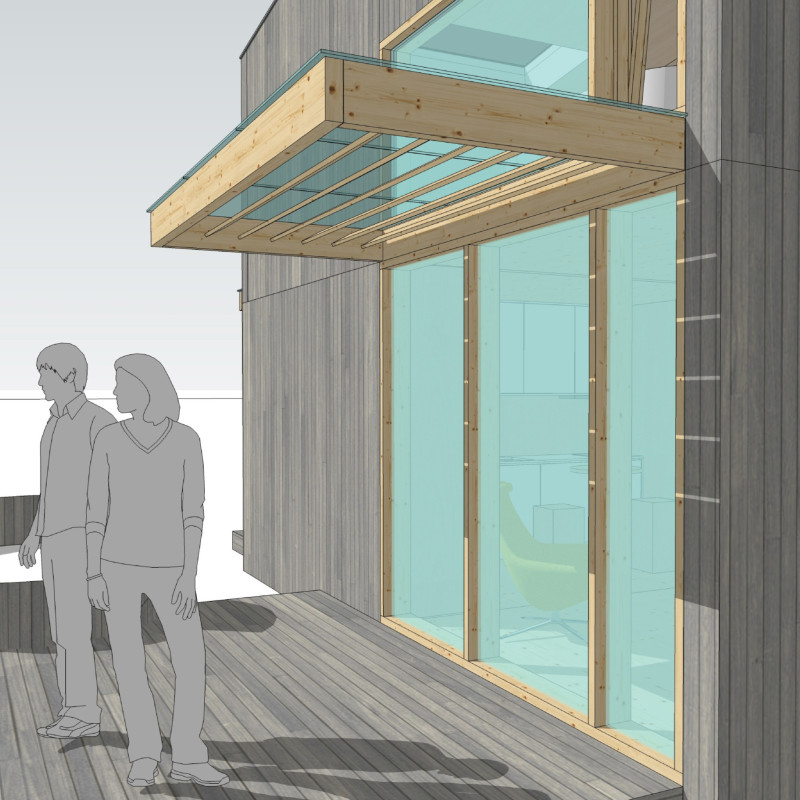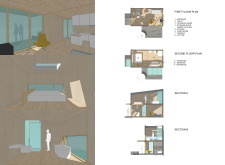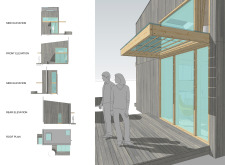5 key facts about this project
The Tutu Mutu Cabin is a private retreat located in a quiet countryside area, designed for relaxation and a connection to the outdoors. Its minimalistic form centers around practical living while highlighting the importance of the surrounding landscape. The building spans two levels, featuring an open layout that allows for easy movement through various spaces while creating a sense of intimacy.
Design Concept
The design reflects a focus on creating different environments for various activities related to relaxation. On the first floor, the living area and kitchen are located in close proximity, allowing for easy meal preparation and social interaction. A spacious terrace extends the interior space outdoors, with a hot tub positioned to provide a calming view of nature.
Spatial Configuration
Efficient use of space is seen throughout the cabin. Essential features are carefully arranged in order to maintain a clean and organized atmosphere. A staircase near the entrance leads to the second floor, which holds a private bedroom and bathroom. These spaces are oriented towards the landscape, offering wide views that enhance the overall living experience. Skylights above the bed and shower serve as clever design elements, creating opportunities for stargazing and bringing natural light into the bathing space.
Sustainability Measures
Sustainability plays a key role in this design. The cabin incorporates a rainwater harvesting system, allowing for responsible water management. Collected rainwater is stored in an underground container for domestic use. Ozone filters are employed to purify the water, while reverse osmosis systems provide clean drinking water. The hot tub can also collect rainwater, further supporting eco-friendly practices.
Materiality
Constructed with traditional timber framing, the cabin is insulated with Rockwool to enhance energy efficiency. Windows are triple-glazed to offer good thermal performance while reducing energy loss. These materials come together to create a comfortable living environment that complements the minimalistic design.
The Tutu Mutu Cabin serves as a thoughtful example of how architecture can foster a connection with nature while providing comfort. Its careful consideration of light and space creates an inviting atmosphere, reflecting the beauty of the surrounding landscape.






















































